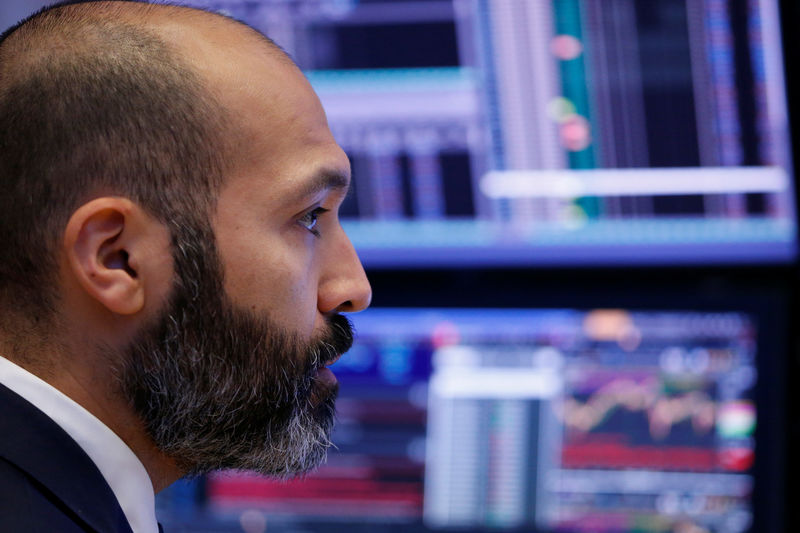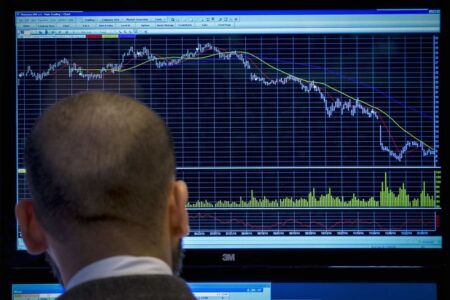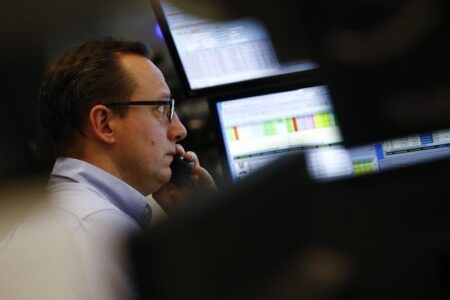© Reuters. FILE PHOTO: The Nasdaq logo is displayed at the Nasdaq Market site in Times Square in New York City, U.S., December 3, 2021. REUTERS/Jeenah Moon/File Photo
By Yantoultra Ngui and Scott Murdoch
SINGAPORE/SYDNEY (Reuters) – Several Southeast Asian companies are considering listing in the United States, banking on strong investor appetite for emerging market growth in the absence of Chinese stock offerings.
Senior executives in leading SME digital financing platform Funding Societies, Singapore-based entertainment firm Gushcloud International and Thai insurance technology firm Sunday told Reuters they were looking into New York as one of their initial public offering (IPO) venues.
This comes on top of recently announced plans by Vietnamese internet company VNG Corp and Philippine real estate company DoubleDragon Corp’s Hotel101 Global to list in the U.S., filling a void left by Chinese companies which hit the pause button on U.S. IPOs after political tensions with Washington intensified, Beijing tightened scrutiny of domestic firms seeking overseas listings and China’s own economy slowed.
“China’s shadow into the ASEAN region has shrunk since the world reopened after the pandemic,” said Leif Schneider, senior legal adviser at law firm DFDL Vietnam.
“Chinese competitors have gradually been pushed to the sidelines due to homemade restrictions and the ensuing domestic economic fallout,” he added. “These factors have enabled some of their ASEAN rivals to step out into the spotlight.”
ASEAN, the 10-member Association of Southeast Asian Nations, includes Thailand, Singapore, Malaysia and Vietnam. The bloc’s biggest car e-commerce platform Carsome Group has also said it was considering various global exchanges, including those in the U.S., for a potential listing.
Southeast Asian firms have raised about $101 million via IPOs in the U.S. so far this year, way below last year’s $919 million, but bankers expect the pace to pick up over the next 12 months as companies hunt for new sources of capital after relying on private funds for the last few years.
In contrast, Chinese firms have raised $463.7 million via U.S listings so far this year, slightly above 2022 levels but a fraction of the $12.96 billion and $12.48 billion raised in 2021 and 2020 respectively, according to LSEG data.
For investors seeking emerging market exposure, Southeast Asia fits the bill, because of the region’s strong economic growth and increasing population, analysts say.
For example, growth in Indonesia, Southeast Asia’s biggest economy, accelerated at its highest rate in three quarters in the latest April-June period, boosted by strong household and government spending, data showed.
Some Southeast Asia companies seeking listings in the U.S. look to raise between $300 million and $1 billion, with valuations ranging from $1.5 billion to $8 billion, bankers said, without naming any firms.
The plans by Southeast Asian firms to list in the U.S. should also cheer Wall Street banks in Asia, who generate about a third of their revenues from equity capital market (ECM) deals which all but dried up with Chinese IPOs.
“For some of the U.S. investors who were focused on emerging markets, their tech exposure largely came from Chinese companies because they were the biggest names listed in the U.S.,” said Sunil Khaitan, Bank of America’s ECM head for Southeast Asia.
“With the current cautious stance around China, these investors are on the lookout for some of the other emerging markets names,” he added.
DIVERSE RETURNS
For companies, the U.S. offers several advantages.
Funding Societies’ co-founder and group CEO Kelvin Teo told Reuters the U.S. was one of the company’s preferred options because of it would provide a deep pool of capital and global investor base.
Andrew Lim, Gushcloud’s chief financial officer, also said a U.S. listing would expose the company to “investor familiarity with fast growing new economy companies”.
Companies in sectors including logistics, technology, mining, electric vehicles and renewable energy are most likely to seek IPOs both locally and abroad, said Deloitte Southeast Asia Disruptive Events Advisory Leader Tay Hwee Ling.
“International investors are seeing the value of portfolio diversification that Southeast Asia provides,” Tay added.
The expected pickup in Southeast Asian listings, however, could get derailed by share volatility and stringent investor scrutiny, analysts say.
Shares of Vietnamese electric vehicle maker VinFast (NASDAQ:) have jumped some 75% since its debut in August, but not without strong volatility in thin trade.
Most U.S. investors, however, are savvy enough when it comes to due diligence.
“U.S. investors are generally proficient and experienced in evaluating opportunities across different sectors, but it is usually helpful for Southeast Asia companies to educate investors on any country specific factors that may affect their business,” said Art Anuruk Karoonyavanich, head of capital markets at DBS based in Singapore.
Read the full article here












